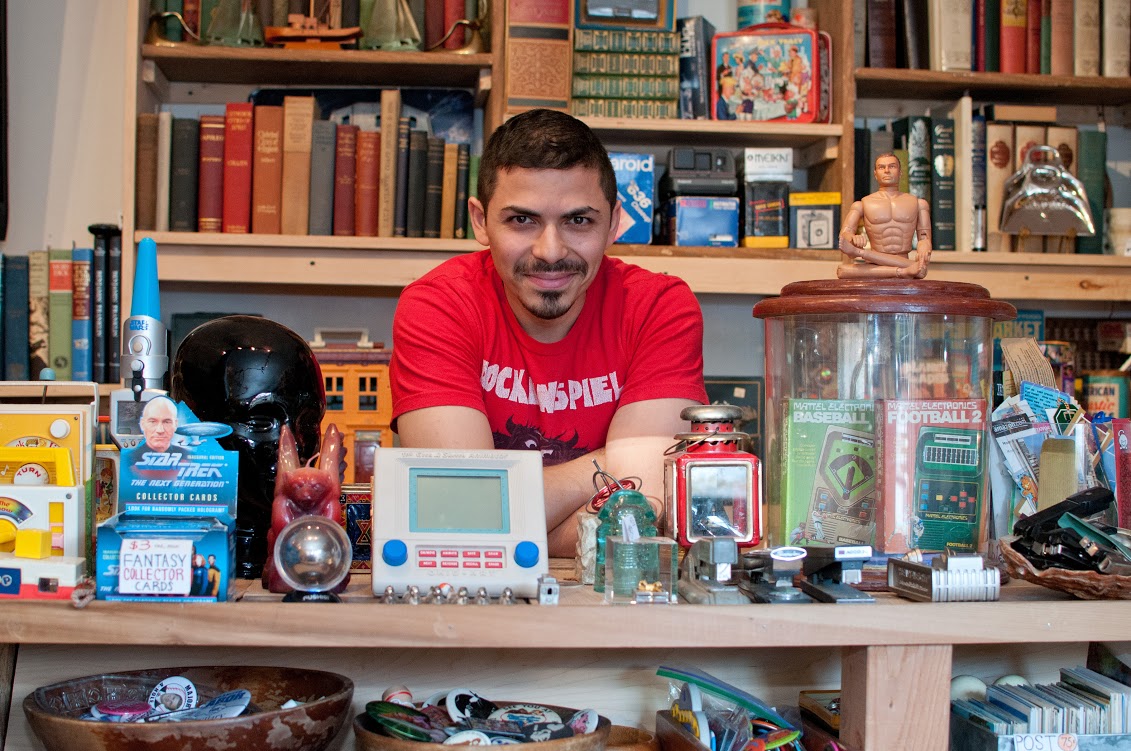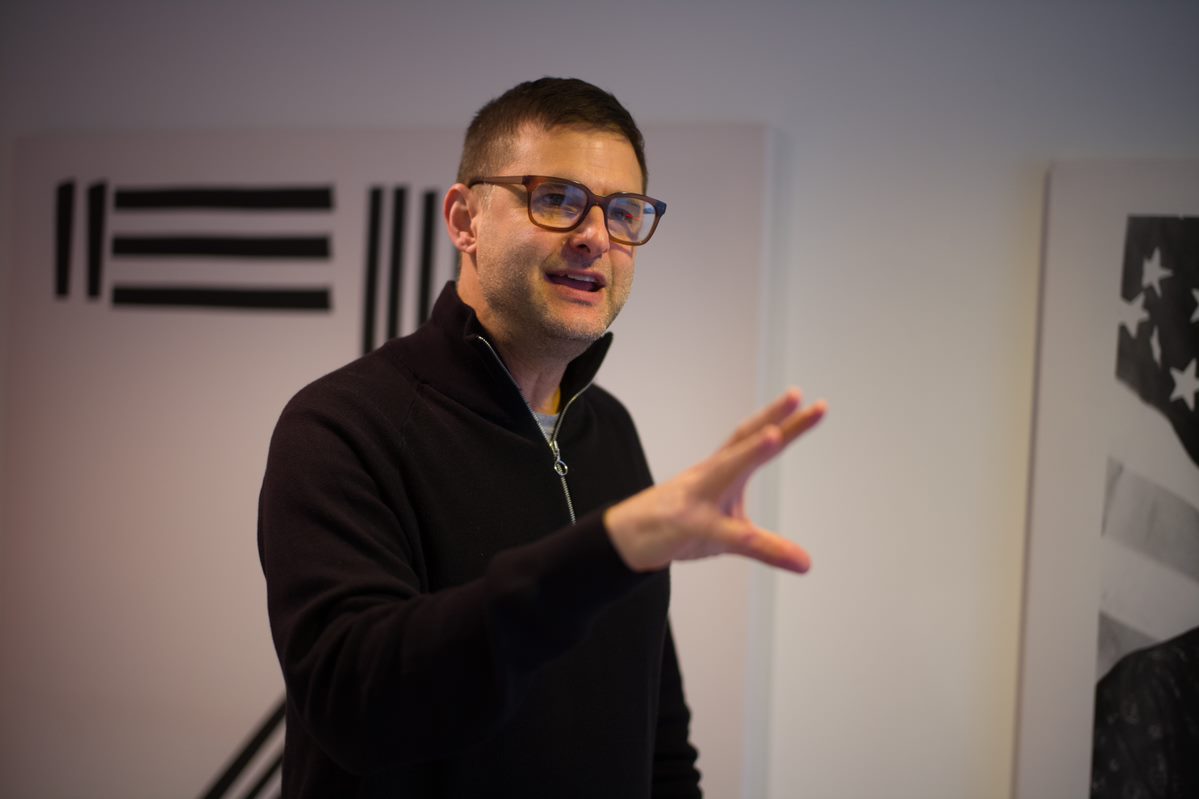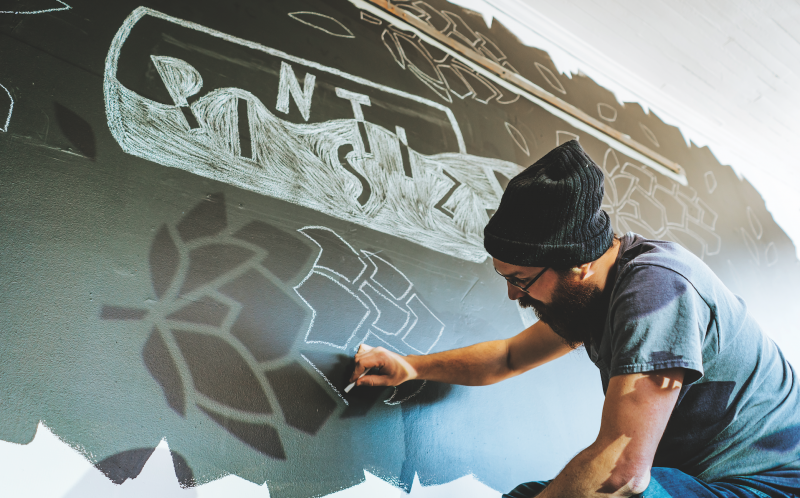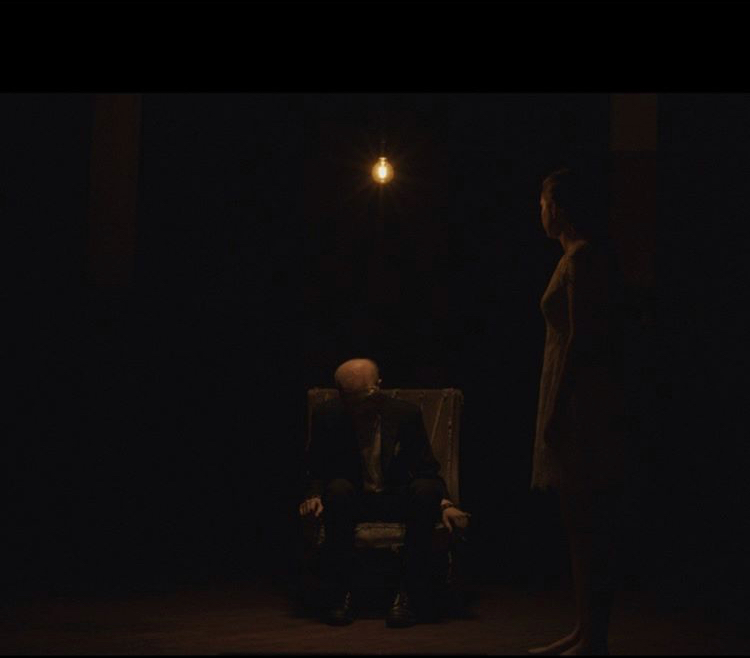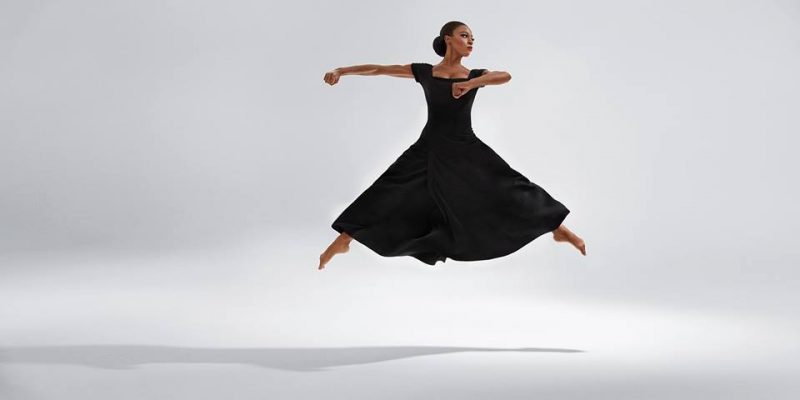This article first appeared in The Alt on November 22, 2016.
Photo by Chris Shields
Melvin looks to be in his mid-seventies. Tufts of white hair puff out from beneath his baseball cap. His thin frame, wrapped in a green windbreaker layered over a gray hoodie, is bent slightly forward, intent on the compact discs he’s flipping through. His voice is light and quiet, easily lost in the bouncing vibraphone playing over the bookstore’s speakers.
The owner of Urban Aftermath Books, Hassan Elminyawi, figures he knows what Melvin’s asking about, though–he’s a regular, after all. “Nothing new today, Melvin,” he says, as the older man takes the few steps toward the small space’s exit onto Hamilton Street. “Will you be back tomorrow? Might have some more discs, then.”
Melvin is already nodding that, sure, of course, he’ll be back. But Elminyawi’s promise of a replenished stock of CDs stops him at the threshold. His eyes light up, amused, and his smile is almost mischievous. “Oh, no. Westerns. I’m looking for Western movies today.” He seems proud of the statement.
“Huh,” says Elminyawi, after his familiar goodbyes with Melvin. “He’s usually looking for jazz. But people surprise you.”
Still, in the little more than a year and a half that Elminyawi has had this storefront in Center Square, he has become pretty familiar with the preferences of his consistent customers. He says he’s got a score or more of patrons who stop in at least once a week to sift through the shop’s steadily shifting inventory of antiquarian and second-hand books, recorded music, games, toys, art and “oddities.” At estate, yard and tag sales, he keeps his eyes peeled on behalf of that one gentleman avid for Masonic books and artifacts; when he finds a stash of Clint Eastwood DVDs, he knows who’s got shelf space waiting; he knows which 20-year-old is fascinated by first-generation Transformers toys; and–today’s interest in shoot-’em-ups notwithstanding–he makes sure to grab the jazz he thinks Melvin has yet to collect.
There’s a treasure-hunt aspect to this process, which obviously animates Elminyawi. As a businessman, he is motivated to provide for his customers, of course, to fill needs, to respond to special requests, to complete obscure collections. He says he’s happy to do it. But in the age of Amazon, and other online options, near-instant gratification for shoppers and collectors is readily at hand. Try to concoct a preposterous genre of literature or music. Now, Google it.
“I mean, you want Japanese pop-metal? You can find Japanese pop-metal. You want them in clown outfits . . . ?” Elminyawi trails off and laughs easily about the phenomenon. He is comfortable with existence and ease of Internet retail (in fact, he maintains a virtual store on Amazon, himself, for national and international clients).
“Amazon is a beautiful thing,” he says. “I admire their model. Now, it’s a global community. I have my storefront, and that’s my local community, and I have my warehouse [which supplies his online product] and that’s my global community.”
But Elminyawi is confident that his brick-and-mortar store provides things that Amazon, for all its increasing technological and customer-service sophistication, cannot. “I think the stores of the future are going to be where you’re not necessarily looking for something specific, but you’re looking for the community that store creates. Stores need to become experiences; not just, ‘OK, I’m going to walk in here and get this.’ They need to be, like, ‘Wow, I’m going to remember this place!’ You get that with small business. Small business is innately unique.”
The stretch of Hamilton Street between Dove and South Swan, where Elminyawi has his basement-level shop, provides all the example you need of this, he says. “I hear it all the time: ‘This is the best 200 feet in Albany.’ ” He singles out Cheesecake Machismo, the popular specialty cake shop next door, and raves: “People from across the state and out of state travel here for that cheesecake! You need to focus on small, artisanal businesses that fill niches. From my experiences and from what I see on the news, New York state is always touting the multi-million-dollar businesses it’s brought in, or wants to bring in. But that’s not what we need to focus on. We really need to focus on getting businesses to occupy vacant spaces in the city and bring back amenities.”
He continues, ticking off neighbors on his fingers, and gesticulating in the directions of the cited business. “You’ve got great Mexican food, you’ve got a great thrift shop, you have a café, you’ve got a Pilates place, a couple of hairdressers, a photography studio. And you’ve got the accountants, lawyers, lobbyists–and affordable housing right up the street. It’s a beautiful mix of things.”
If Elminyawi sounds at this point as much like an urban planner as a small-business owner, it’s with good reason: “I’m just a thesis away from getting my Master’s in transportation planning.” Prior to opening Urban Aftermath, he was a state employee with the Department of Transportation, selling books online as a side venture. The business was something of a family tradition (Elminayawi’s father owns Books and More on Fulton Street in Troy), but his embrace of the full-time life of a merchant was, in his account, happenstance:
“Simply put, I came across an estate sale that had 20,000-plus books, and I called my dad and said, ‘Hey, Dad, get over here. Are you interested? He ended up buying a box of books and I ended up making a deal where I bought all the books remaining at the end of the sale. It ended up being five or six thousand books. My wife got super pissed at me.”
(Whatever her reaction at the time, Elminyawi’s wife, Leila Novakowski, now has an easygoing appreciation of her husband’s venture: “He genuinely enjoys this,” she says. “He has a passion for this, and people love the store.” )
It was with this estate-sale haul that Elminyawi started his online trade, and as sales grew so too did inventory. “I started in my living room, just me watching Law & Order, or whatever, and listing books just as a hobby. But one bin turned to 20, turned to 25 . . .”
Elminyawi maxed out, in turn, the living room and several storage units. Eventually he secured suitable warehouse space but, in the meantime, he was maxing out in other ways, as well: “I was running on empty at both of my jobs and with my family. [Elminyawi and Novakowski have a 3-year-old son, Samy.] So, I decided I would do the book thing full-time, and I decided I wanted a store.”
As he saw it, an urban storefront would be the best of both worlds: “I was happy with my job at the DoT, but planning takes a long time unless you’re the one really doing it, you’re the businessman, creating something people want. Otherwise, going through the typical bureaucratic venues, things take a very, very long time. I really felt that occupying a vacant space and giving life to a neighborhood and providing an amenity was as urban planning as you get.”
His professional background was helpful in practical ways–he designed the store himself, he says, in Google Sketch Up, maximizing the modest square footage for his more than 10,000-item inventory–but also more broadly, philosophically.
“One of the things about urban planning that I loved so much was that it taught me to deal with all walks of life,” Elminyawi says. “It’s a from-the-ground-up thing. It should be done from the lowest levels up, not from the highest levels down. So, this is a community spot, a place to come and meet other people, to talk to me about what’s on their minds. I talk to them about what’s on my mind, what’s going on in the world. Whether or not things are solved in the end, it feels good to just get it out.”
And, certainly, over the course of this one afternoon, there is evidence that Elminyawi’s approach is resonating. A duo of young African-American women come in to shop DVDs, taking time to discuss with him Christopher Nolan’s debut feature Following. Another couple, both dressed in black T-shirts emblazoned with band logos, swings through with a bag of graphic novels for sale or trade. Lynn Beaumont, co-owner of the neighboring Cheesecake Machismo, stops by for a friendly chat, and a young man gratefully hits Elminyawi up for access to an outlet to charge his phone.
When Elminyawi says he hopes to provide an amenity for Center Square, he is referencing Urban Aftermath as a specific physical space, an address: 295 Hamilton St., Albany. It’s a storefront, one small business among several now enlivening a once less-tenanted city block. There’s satisfaction enough in that for an urban planner. But, he makes clear, the bibliophile, the culture hound, in him finds something special about his stock in trade.
He tells a story about a particular find during one of his frequent garage-sale searches: “It was some kind of charitable fundraiser. So, I made a donation and just grabbed this giant box of cassettes to take home. A lot of them were recorded over, weird random things. But at the very bottom of the box is this cassette by an Arabic singer, an Egyptian singer, and my parents are Egyptian. I remember them talking about her–her name is Um Kulthum. And there her cassette is. You can’t find that online. You can’t find the cassettes. You can’t find the records easily or cheaply, but you can’t find the cassettes. What are the chances that this cassette is at the bottom of a box in Albany, New York?”
Collectors of all sorts–comic-book geeks, first-edition fanatics, Pokémon Go players–know the thrill of the rare find, but in this case Elminyawi’s enthusiasm is more personal. “I started listening to it and I loved it. It’s like a piece of my parents’ history that I get to live. You never know what you might find.” And you never know just what happenstance find might trigger that joy, whether it be the warmth of nostalgia, the satisfaction of historical curiosity or the thrill of what-the-heck-is-this oddity.
Elminyawi excuses himself to attend to a trio of shoppers: a stylish mom in black and grey punctuated with a bright pink scarf has given her two children, a pre-teen boy in Under Armor sportswear and a younger girl in stripes, sparkles and Velcro sneakers, permission for a purchase. The kids are electric with excitement: “Now we can watch it whenever we want!”
They’re rung up, amid many “thank you”s and they leave, the girl whistling a ragged half-recognizable tune.
What had them so upbeat?
Elminyawi shrugs and smiles, imbuing the gesture with a deep satisfaction. “Andy Griffith DVDs. See what I mean? People surprise you.”

